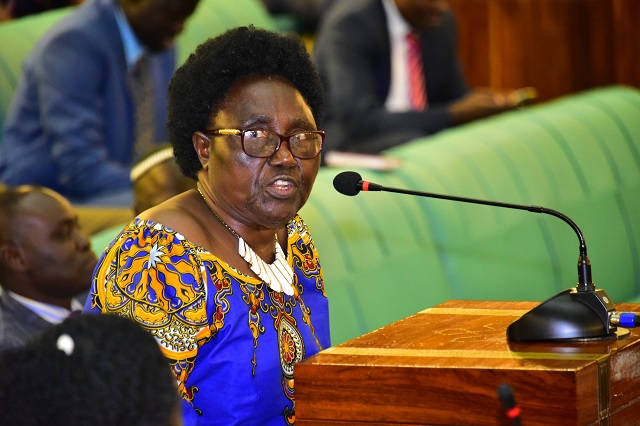
Atim Ogwal Cecilia Barbara commonly known as Cecilia Ogwal is the District Woman Representative for Dokolo District and member of the Forum for Democratic Change (FDC) party. She spoke to The Independent’s Julianne Sabiiti about Uganda’s 57th Independence Anniversary.
What memories do you have of the pre-independence era and where you were at the time?
I was in the early years of my secondary education, O’Level. In 1962 I was in Senior Two in a rural secondary school for girls and was not privileged to participate in the marching and in the celebrations in Kampala. There was the joy that everybody felt. We had dismantled governance from the colonial powers and vested it in our own indigenous leaders. The slogan was “Freedom from slavery”. You found pictures of maize on the trees to remind people that if you did not vote for Uganda Peoples Congress (UPC), then you wanted to prolong the colonial rule in Uganda. My father was a Roman Catholic and one would have expected us to be with the Democratic Party (DP) but he differentiated religion and politics. He was a committed UPC member. Most of the strong Catholics were supporters of the DP. I was very young but was in position to follow the politics and try and understand the debates.
How about the post-independence era?
I went to Nairobi University. I participated in the student politics. I came back to Uganda in 1969. I was very active in the UPC Youth wing and in central politics even when also following my career in management. I participated in the Delegates’ Conference at Lugogo where (Milton) Obote was shot at. I was in charge of foreign delegates. I was assigned the delegation from Tanzania which was led by Julius Nyerere. I participated until 1971 when Idi Amin overturned the government. After the death of Janani Luwum, Idi Amin went vicious and many people were arrested. That was the time we found ourselves fleeing the country with my small family and we settled in Nairobi. I participated in coordinating activities for the liberation of Uganda with Dar es Salaam where most of the Ugandans were and in Uganda, sometimes risking crossing borders and get things done. I also got involved in what was called The Discussion Group. We overthrew Idi Amin and Yusuf Lule appointed me Deputy Minister of Commerce along with Sam Kuteesa and Robert Ssebunya. But because of my involvement in the UPC politics, we felt that participating in that interim government was going to hurt our positioning the party in the main national politics. I declined the appointment. Politics has its negative side and being in the opposition during the National Resistance Movement (NRM) government, hurt my business. I think the government felt that with my strong commercial arm I was not willing to bend to embrace the NRM ideology. But I think they were mistaken because even when my business collapsed I remained focused on what I am and my principals and what I believe in.
Do you think that Uganda’s independence had a positive impact on our social and economic state?
Yes. First was the deliberate development of the economic arm of the government, Uganda Development Corporation (UDC) to strategically develop agro based industries, to boost agricultural production, to create employment for our people. UDC actually became the center where young and upcoming managers were developed. We didn’t have human resource well trained in management, but companies were very well managed. There was very minimum corruption. Any element of corruption was severely punished. The civil service was very strong and terms and conditions of employment were very favorable. I worked in the licensing department under the Ministry of Commerce, which was chaired by the Jayant Madhvani (the eldest son of Muljibhai Madhvani). Many commercial people wanted favors, to give them import or export licenses but some of us were not easy to bend. We favoured Africans who came up like James Mulwana who was just an ordinary struggling Ugandan. We gave these people favorable licensing terms to encourage them to also come up in business. And we did succeed. There was a man called Opoka from Acholi who also did extremely well.
Did the political instabilities at the time hinder the work you were doing? Generally, across the country, were people struggling economically because of the insecurities?
During the post-independence era we did well as a colony. The Ugandan economy was well managed. Actually I think Uganda was ahead in the East African region. Uganda was ahead of Kenya and Tanzania. I was getting a good salary, had a small family, two children, very little expense. I was not buying flashy clothes and shoes, I invested. It was really the Idi Amin era that brought Uganda down to its knees. By the time I went into exile my house was already built. By the time we came back everything was gone and we had to start from square one. But that’s life.
 The Independent Uganda: You get the Truth we Pay the Price
The Independent Uganda: You get the Truth we Pay the Price



